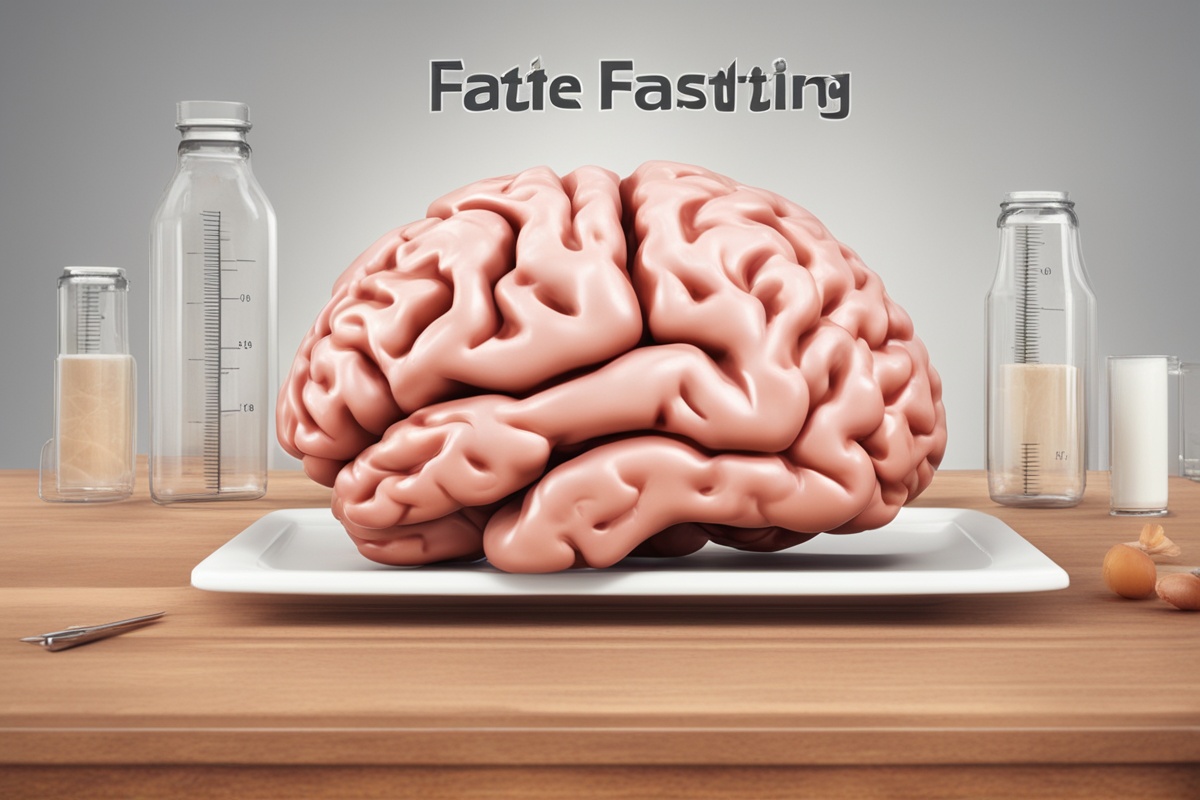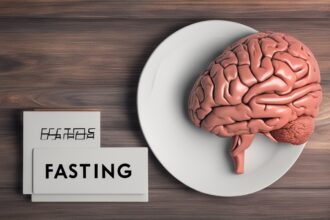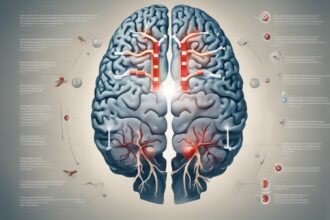Have you ever wondered if skipping a meal could do more than just help with weight loss? What if I told you that health fasting—the practice of intentionally abstaining from food for specific periods—might be a key to unlocking better brain health? Over the past decade, research has increasingly pointed to fasting as a powerful tool for not only physical wellness but also mental sharpness, emotional balance, and even protection against neurodegenerative diseases. As someone who’s explored various fasting methods like intermittent fasting and extended fasts, I’ve felt the mental clarity firsthand, and I’m excited to dive into the science and practical tips with you. Let’s explore how fasting can nourish your brain in ways you might not expect!
What Is Health Fasting, and How Does It Work?
When we talk about health fasting, we’re referring to a variety of practices where food intake is restricted for a set duration. This can range from intermittent fasting (like the popular 16:8 method, where you fast for 16 hours and eat during an 8-hour window) to longer, multi-day fasts. The goal isn’t just calorie reduction; it’s about triggering specific biological processes that benefit your body and mind. During fasting, your body shifts from using glucose as its primary energy source to burning stored fats, producing ketones—a type of molecule that plays a starring role in brain health (Mattson et al., 2018). This metabolic switch is where the magic happens, and it’s the foundation for many of the cognitive benefits we’ll discuss.
The Science Behind Fasting and Brain Health
Let’s get into the nitty-gritty: how does health fasting actually impact your brain? When you fast, your brain undergoes a series of protective and regenerative processes. First, fasting triggers autophagy, a cellular “clean-up” mechanism where damaged cells and proteins are broken down and recycled. This process is crucial for maintaining healthy brain cells and may even slow the progression of diseases like Alzheimer’s (Rubinsztein et al., 2015). Additionally, fasting increases the production of brain-derived neurotrophic factor (BDNF), a protein that supports neuron growth and protects against stress and inflammation (Mattson et al., 2018). Studies also suggest that ketones, produced during fasting, serve as an efficient fuel for the brain, potentially enhancing focus and reducing oxidative stress (Cahill, 2006). These mechanisms collectively contribute to what many describe as “mental clarity” during fasting.
Key Benefits of Health Fasting for Cognitive Function
The perks of health fasting for your brain are pretty impressive, and they go beyond just feeling more alert. Here are some of the standout benefits backed by science:
- Improved Memory and Learning: fasting boosts BDNF levels, which are linked to better memory formation and learning capabilities (Sleiman et al., 2016).
- Reduced Risk of Neurodegenerative Diseases: Regular fasting may lower the risk of conditions like Parkinson’s and Alzheimer’s by reducing inflammation and oxidative damage (Longo & Mattson, 2014).
- Enhanced Mood and Stress Resilience: Fasting can influence neurotransmitter activity, potentially reducing symptoms of anxiety and depression (Fond et al., 2013).
- Better Focus and Productivity: Many fasters report heightened concentration, likely due to stable energy from ketones rather than glucose spikes.
These benefits aren’t just theoretical—they’re grounded in research and often echoed by people who’ve made fasting a part of their lifestyle. Imagine tackling your workday with a sharper mind or feeling emotionally steadier during stressful times. That’s the power of fasting for brain health.
Practical Tips to Start Fasting for Brain Health
If you’re new to health fasting or curious about leveraging it for cognitive benefits, starting can feel daunting. But don’t worry—I’ve got you covered with some actionable steps to ease into it safely. Remember, fasting isn’t a one-size-fits-all approach, so listen to your body and consult a healthcare provider if you have underlying conditions. Here are my top tips to get started:
- Begin with Intermittent Fasting: Try the 16:8 method by skipping breakfast or delaying your first meal. It’s less intimidating than longer fasts and still offers brain-boosting benefits.
- Stay Hydrated: Drink plenty of water, herbal teas, or black coffee during fasting windows to avoid dehydration, which can impair cognitive function.
- Break Your Fast Wisely: Opt for nutrient-dense foods like avocados, nuts, and leafy greens to support brain health after fasting.
- Track Your Mental State: Keep a journal to note changes in focus, mood, or energy. This can help you fine-tune your fasting schedule.
- Avoid Overdoing It: Start with shorter fasts and gradually increase duration. Over-fasting can lead to fatigue or irritability, counteracting brain benefits.
These tips are designed to make fasting approachable while maximizing its impact on your mental well-being. I started with just a 12-hour overnight fast and slowly built up, noticing my focus improving within weeks. Small steps can lead to big results!
Potential Risks and How to Mitigate Them
While health fasting offers incredible benefits for brain health, it’s not without potential downsides if not done thoughtfully. Some people experience headaches, irritability, or difficulty concentrating during the initial adjustment period, often due to low blood sugar or dehydration (Cahill, 2006). There’s also the risk of over-fasting, which can lead to nutrient deficiencies or exacerbate conditions like eating disorders. If you’re pregnant, have diabetes, or are on certain medications, fasting might not be suitable without medical supervision. To mitigate these risks, start slow, prioritize hydration, and always break your fast with balanced meals. If you feel unwell, stop and reassess—your health comes first. I’ve learned to recognize my limits by paying attention to how my body and mind respond, and I encourage you to do the same.
How Fasting Fits Into a Brain-Healthy Lifestyle
Fasting alone isn’t a magic bullet for brain health—it’s most effective when paired with other supportive habits. Think of health fasting as one piece of a larger puzzle. Combine it with regular exercise, which also boosts BDNF levels, and a diet rich in omega-3 fatty acids, antioxidants, and vitamins to fuel your brain during eating windows. Quality sleep is another non-negotiable; fasting can sometimes disrupt sleep if you’re hungry at night, so time your eating window earlier in the day if needed. Stress management practices like meditation can amplify fasting’s mood-enhancing effects. Personally, I’ve found that coupling a 16:8 fasting schedule with morning walks and mindfulness exercises creates a synergy that keeps my mind sharp and calm. How do you plan to integrate fasting with your current routines?
In wrapping up, it’s clear that health fasting isn’t just a trend—it’s a scientifically supported strategy for enhancing brain health, from improving memory and focus to potentially protecting against cognitive decline. Whether you’re drawn to intermittent fasting or curious about longer fasts, the benefits for mental clarity and emotional resilience are worth exploring. By starting slow, staying mindful of your body’s signals, and pairing fasting with a brain-friendly lifestyle, you can tap into these advantages safely. I’ve seen firsthand how fasting can transform not just how I feel physically but how I think and process the world around me. So, why not give it a try? Start with a small fasting window this week and see how your mind responds. Let’s keep the conversation going—share your experiences or questions in the comments below!
References
- Cahill, G. F. (2006). Fuel metabolism in starvation. Annual Review of Nutrition, 26, 1-22. https://doi.org/10.1146/annurev.nutr.26.061505.111258
- Fond, G., Macgregor, A., Leboyer, M., & Michalsen, A. (2013). Fasting in mood disorders: Neurobiology and effectiveness. Psychiatry Research, 209(3), 253-258. https://doi.org/10.1016/j.psychres.2012.12.018
- Longo, V. D., & Mattson, M. P. (2014). Fasting: Molecular mechanisms and clinical applications. Cell Metabolism, 19(2), 181-192. https://doi.org/10.1016/j.cmet.2013.12.008
- Mattson, M. P., Moehl, K., Ghena, N., Schmaedick, M., & Cheng, A. (2018). Intermittent metabolic switching, neuroplasticity and brain health. Nature Reviews Neuroscience, 19(2), 63-80. https://doi.org/10.1038/nrn.2017.156
- Rubinsztein, D. C., Mariño, G., & Kroemer, G. (2015). Autophagy and aging. Cell, 146(5), 682-695. https://doi.org/10.1016/j.cell.2011.07.030
- Sleiman, S. F., Henry, J., Al-Haddad, R., Hayek, L., Abou Haidar, E., Stringer, T., … & Chao, M. V. (2016). Exercise promotes the expression of brain-derived neurotrophic factor (BDNF) through the action of the ketone body β-hydroxybutyrate. eLife, 5, e15092. https://doi.org/10.7554/eLife.15092






